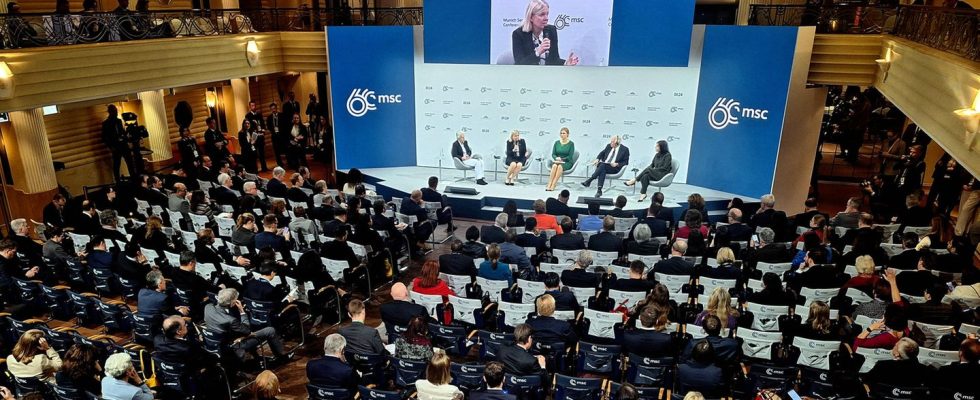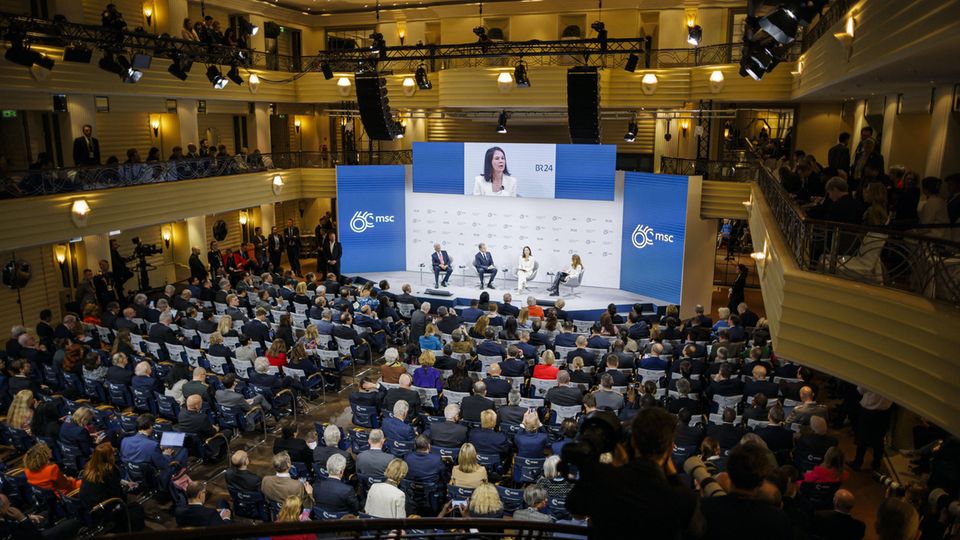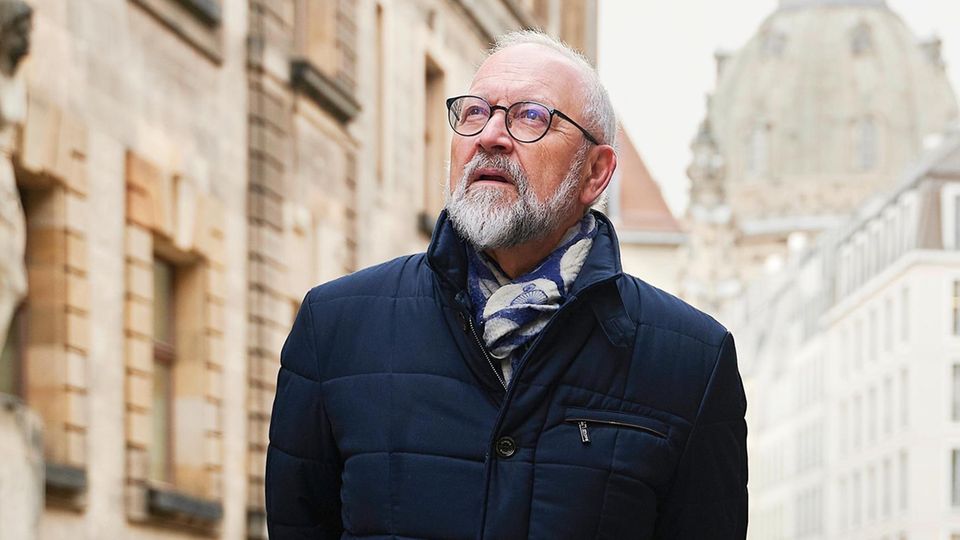analysis
“Peace through dialogue”
The 60th Munich Security Conference is history – these five (sobering) findings remain
For three days, participants at the Munich Security Conference discussed current world politics
© DTS News Agency / Imago Images
Leaders, diplomats and business leaders from all over the world met in Bavaria’s state capital for three days. The event wanted to achieve “peace through dialogue”. What are the most important findings from the 60th Munich Security Conference?
1. The world has the blues
The events were subject to entertainment tax Munich hasn’t been there in previous years either; the debates there mostly revolve around crises and wars. This time, however, the dejection of the supposed or real world elite was palpable. At a lunch on the sidelines of the conference, the CEO of one of the world’s largest corporations called for a test vote: Is the world developing in the right direction? Almost no hand in the room went up.
Ukraine continues to fight, and its President Volodymyr Zelensky tried to be confident in his appearance. But hardly anyone has any hope of a Ukrainian offensive, as was heard in Munich last year. The exhaustion of the Ukrainian army was a constant topic, as was the growing concern as to whether the populations in countries like Germany would continue to support further aid to Ukraine for a long time. Added to this was the uncertainty about the role of the USA, where Donald Trump is threatened with the return in November. The fact that the major conflict in the Middle East was only really discussed on Sunday underlined how much helplessness there is regarding this sensitive issue.
2. America is here – or is it not?
It’s hard to blame the Biden administration for not trying. US Vice President Kamala Harris not only came to Munich, she also said a lot of things that Europeans would like to hear from Washington – for example, that the United States naturally wants to continue to play a leading role in the world. But can Harris still speak for the USA? Your own president has to fend off increasing doubts about his suitability for office and is trailing against Trump in the polls for the presidential election. The Ukraine aid package is in danger of being torn apart in the American Congress.
And of course, lurking over all the meetings were the words of presidential candidate Donald Trump, who just last week declared NATO more or less obsolete – and no longer wants to defend member states that spend too little on the military. There are still moderate and even transatlantic-minded Republican politicians who were also in Munich, but they hardly dare to raise their voices against Trump anymore. Lindsey Graham, Republican Senator from South Carolina and a regular guest at the conference for many years, demonstratively preferred to drive to Texas, to the border with Mexico, this year. The fight against illegal immigration is more popular with Trump’s base than talks with Europeans.
3. Putin remains Putin
Whether the death of Kremlin critic Alexei Navalny was really timed by Vladimir Putin to burst into the opening hours of this year’s security conference may never be clear. But the fact is: Putin, who declared the new Cold War at the Munich conference in 2007, knows about its international significance. If there was any need for proof that the Russian president doesn’t care about all the West’s warnings about moderation, it is the death of Navalny. After all, even US President Joe Biden had personally warned Putin not to harm him in prison. The protests against Navalny’s death remained manageable in Russia. This time, Putin’s opponents who were present at the security conference appeared exhausted. Because it is clearer than ever: there is no way back for Putin.
4. The bomb debate will remain
Harvard professor Graham Allison, one of the planet’s leading nuclear experts, created a triad in Munich, consisting of three numbers: 78, 78, 9. 78 years since the last armed conflict between major powers, 78 years since the deployment of nuclear weapons – and only nine states that have these weapons, fewer than expected when the bomb was invented. Will this situation last? Realist Allison does not expect this; nuclear weapons offer effective protection to states (and, incidentally, would have also provided this to Ukraine, which gave them up after the Cold War). He therefore appeared to be open to European considerations about setting up their own protective shield if the Americans’ nuclear shield could no longer be relied upon. The debate about this has gained momentum in recent days, but details are still scarce. Could one really cooperate with France, even if the right-wing populist Marine Le Pen rules there? Can British, French and European nuclear weapons really replace comprehensive American protection? What would be the support among the population for such measures? And: How much is all of this supposed to cost? The bomb debate has only just begun, perhaps it will soon have to be defused.
5. Olaf Scholz leads, a little
It’s been almost two years since Chancellor Olaf Scholz gave his “turning point” speech in the German Bundestag. A lot has happened since then, but one thing hasn’t: a comparable speech with which the Social Democrat explains the implementation of the turning point. Scholz didn’t give this speech in Munich either, but he did find a sentence that could be understood as a reminder to his own divided coalition: “Without security, everything else is nothing.” At the same time, this was an appeal to other countries to do more.
starChancellor expert Nico Fried wrote about Scholz’s appearance: “The Chancellor, who has been under pressure for a long time, is now putting the others under pressure. In Munich he described in detail the consequences that a Russian victory in Ukraine could have – for them Security of Europe and the entire world. To this he added quite bluntly the demand that all Europeans should increase their aid to Ukraine. Scholz, who had to hear in the first year of the war that Germany’s initial hesitation might lead to a Russian victory in Ukraine would now warn its European partners not to take on this blame.” Fried was amazed that the Chancellor seemed – once again – all the more calm, self-confident and confident the deeper he was in the crisis. “And if you have to judge whether this is an astonishing denial of reality or an astonishing leadership quality, then at least based on the appearance at the security conference, the latter prevails. Even if just narrowly.”




